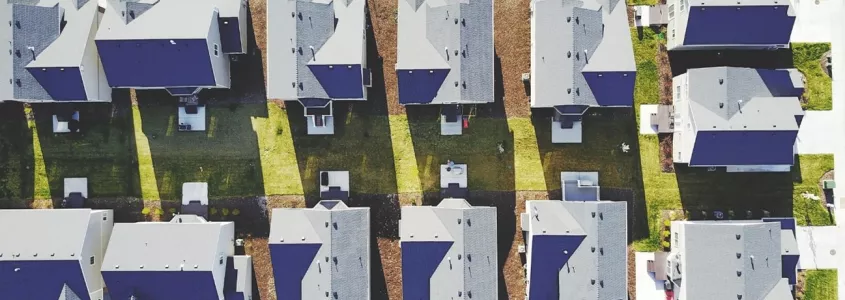
The neighbours that make up the community of owners are legally obliged to pay the community fees set by the board. This is established in article 9 of the current "Ley de Propiedad Horizontal". However, it is common to find delinquency in the community of owners, which generates many doubts about how to act, so it is best to seek advice from a civil lawyer.
What rights do neighbours who do not pay their community fees have?
The debtor neighbour has a series of restrictions on his actions towards the community. His main restriction is that he no longer has the right to vote at the general meeting of owners, but may attend the general meeting of shareholders and have the right to speak, but not to vote. However, you will have the right to vote when the amount claimed is certified before a notary or registered in court, i.e. when you pay the money in a court or notary's office instead of paying the community fee, usually because you do not agree with the amount or the destination of the community fee. On the other hand, defaulting neighbours and anyone occupying the premises, such as tenants, have the right to use the communal facilities (lift, swimming pool, etc.), despite not paying the community fees. However, on this issue we can find case law in favour of depriving the defaulter of the possibility of using non-essential common elements, especially if the community statute previously provided for this possibility.
What are the consequences for these neighbours?
The neighbour who did not pay the community in due time and form, in addition to the circumstances outlined in the previous point, runs the risk of the community agreeing to take legal action against him in the commission and condemning him for the amount owed. In such cases, he must also pay interest and legal fees, including lawyers' fees, experts' fees, etc. used by the community to enforce the rights arising from the non-payment.
In addition, the defaulter will not be able to sell his property for not having paid on time, as for the sale of his property, the Lateral Property Law requires him to present a certificate issued by the administrator and obtain a certificate that the property to be sold is free of debts.
Article 9 of the Horizontal Property Law provides that the transferred property is subject to the unpaid instalments corresponding to the previous year's annuity and to the payment of the overdue part of the current annuity. Therefore, the law obliges the notary to demand from the seller a certificate from the owners' association that the property being sold is up to date with the payment of the community fees, or to prove that money is owed. However, the buyer can release the seller from the obligation to provide the above-mentioned proof and explain this to the notary.
What may be the reasons why a neighbour decides not to pay the community fees?
There can be several situations, but the most common is usually economic problems; a bad economic situation (unemployment, ERTE, etc.), the neighbour cannot receive utility bills due to non-payment, although he/she hopes that the problem of non-payment can be solved. Another situation may be due to dissatisfaction with the debt, i.e. the neighbour does not pay because he/she does not agree with his/her share of the community charges or does not agree with the income from work. And finally, it may be because he is a long-term defaulter, even if he has the means not to pay.
These are probably the most common cases of non-payment and each should be treated differently, although the outcome is usually the same if the non-payment continues.
And if there is a neighbour who does not pay, what should the community do?
If there is a neighbour who has financial problems, it is best to develop a debt settlement plan that is acceptable to the neighbour, not too long and definitely achievable.
If the neighbour is dissatisfied with the debt, he should say exactly what his objection is, whether it is an incorrect calculation of the rent paid, whether he is dissatisfied with the attribution part, etc.
In these cases you have to analyse what the neighbour says, and if he is right, it would be corrected, but if he is wrong, he must pay it. It is also important to know that any mediation to resolve the breach is useless if the neighbour is an expert defaulter.
All of the above are some of the first steps that should be taken before holding an owners' meeting. During the meeting, the administrator (if any) should inform the owner of the existing payment and the steps taken to try to recover the payment.
For owners in financial difficulty, if a workable payment plan is agreed and adhered to, the debit claim should only be satisfied if the owner defaults.
How to claim payment from the Community?
Under the horizontal title, communities of owners can reclaim money owed to them for non-payment of common quotas through the special payment procedures that apply to communities of owners. For this purpose, a certificate of non-payment of state fees issued by the Secretary of the Community (normally the administrator of the property, if any) with the approval of the President is sufficient.
The certificate must reflect the existing debt and its amount, it has been paid and the owner fully complies with the accounts approved by the assembly and the debtor's payment requirements.
Reaching an amicable agreement
Before resorting to legal action, it is always advisable to try to resolve the debt claim amicably. Talking to the defaulting neighbour in person to try to understand a solution and agree on a way to settle the debts of the community of owners can save a lot of unnecessary trouble and expense. In the event that the person still does not pay his debts, a meeting of the homeowners' association will have to be called, provided that this is indicated on the agenda, and the amount that he is obliged to pay will have to be established in the minutes. The community will have to proceed with an order for payment procedure and notify the defaulter by means of a burofax with acknowledgement of receipt and a notarised copy. All measures taken must be controlled by the president and the secretary of the community.

"Anywhere in Spain"
With our online appointment system you will have immediate advice without the need for face-to-face visits or travel.
One of our lawyers specialized in your area of interest will contact you to formalize an appointment and make your consultation by video call.

Add new comment